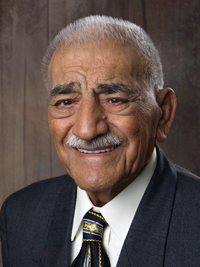GENERATION GAPS – TRADITIONALIST OR SILENT GENERATION
CHARACTERISTICS
As part of series of articles about generation gaps, this part
provides you detail information, characteristics and values about
the oldest generation namely Traditionalist or Silent Generation.
For information about definitions and identifying all generations
that are present around us, please see Part 1 at
http://www.texasfivestarrealty.com/Generation_Gaps_Defintions.asp
Part 2: Traditionalist or Silent Generation

What defines a Traditionalist generation??
�
The members of this generation were born before 1946
(Born 1945 and Prior).
�
The traditionalist experienced the Great depression,
World War I and World War II.
The life of this generation have been affected, directly or
indirectly, by the long World War I and II and great depression.
Characteristics of Traditionalist Generation
�
Traditionalist or Silent (Born 1945 and Prior)
�
Traditionalists are loyal.
�
Submissive because they were taught to respect
authority.
�
Traditionalists will avoid causing trouble and are
good team players.
�
They are the least likely to initiate conflict at
work.
�
There is also a tendency to resist change.
�
They are the least likely to change jobs (jump from
one job to another)
�
They value stability, safety, security, consistency
and commitment.
�
Traditionalists like to be recognized for their hard
work. Recognition is one of the key characteristics of this group.
�
Traditionalists also see work as a team effort and
avoid conflict.
�
This group is also technically challenged and they may
struggle to learn new technology. However, there are many that have
email, facebook and other social media accounts and communicate with
others with these new technologies.
�
They also prefer lecture style training over web-based
such as online studies and webinars.
Traditionalist Background
�
The Traditionalist had very little exposure and need
for computers and other devices we take for granted today (e.g.,
PCs, laptops, tablets, smart phones, etc).
�
The Traditionalist relied on human interaction for
their daily entertainment. This affects how the generations interact
with each other. For example, a Traditionalist may prefer
to speak with a coworker face-to-face, but the younger would rather
text or instant message their conversation.
�
The Traditionalist valued their relationship with
others. They will honor and value their promises. This affects how
the generations deal and do business with each other. For
example, a Traditionalist may prefer to shake hand in a
business transaction, but the younger would rather go through the
legal process and signing documents in their business transactions.
Contact us about your Real Estate
Questions